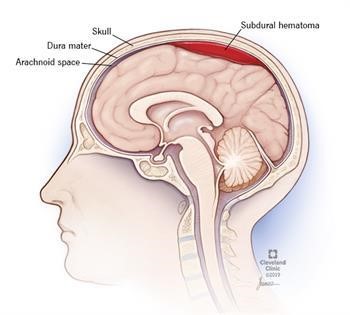A nurse provides education to a client recently diagnosed with macular degeneration. Which of the following statements made by the client requires reinforcement of education by the nurse?
"I will incorporate foods rich in vitamin C in my diet."
"I will receive injections into my eye."
"My vision will slowly be restored after I start using the eye drops."
"My vision will become progressively more blurry."
The Correct Answer is C
Choice A Reason: This is correct because incorporating foods rich in vitamin C in the diet can help prevent or delay macular degeneration. Vitamin C is an antioxidant that can protect the cells of the macula, which is the central part of the retina that is responsible for sharp and detailed vision, from oxidative stress and damage. The nurse should also advise the client to consume foods rich in other antioxidants, such as vitamin E, zinc, lutein, and zeaxanthin.
Choice B Reason: This is correct because receiving injections into the eye can help treat macular degeneration. Injections are a form of anti-vascular endothelial growth factor (anti-VEGF) therapy, which can block abnormal blood vessel growth and leakage in the macula that can cause vision loss. The nurse should explain to the client how often and how long they need to receive injections and what side effects or complications they may experience.
Choice C Reason: This is incorrect because vision will not be restored after using eye drops for macular degeneration. Eye drops are not a proven or effective treatment for macular degeneration, which is a chronic and progressive condition that causes irreversible vision loss. The nurse should reinforce education by informing the client that eye drops may only provide temporary relief of dryness or irritation, but they will not improve or restore vision.
Choice D Reason: This is correct because vision will become progressively more blurry with macular degeneration. Macular degeneration can cause blurred or distorted central vision, difficulty reading or recognizing faces, or dark spots in the visual field. The nurse should educate the client on how to cope with vision loss and use adaptive devices, such as magnifiers, large-print books, or voice-activated technology.
Nursing Test Bank
Naxlex Comprehensive Predictor Exams
Related Questions
Correct Answer is A
Explanation
Choice A Reason: Sweating and pallor are early signs and symptoms of dumping syndrome, which is a condition where food moves too quickly from the stomach to the small intestine, causing rapid fluid shifts and hormonal changes. Sweating and pallor are caused by hypoglycemia, which occurs when the high concentration of food in the small intestine stimulates insulin secretion.
Choice B Reason: Abdominal cramping and pain are late signs and symptoms of dumping syndrome, which occur about one to three hours after eating. Abdominal cramping and pain are caused by intestinal distension, spasms, and gas formation.
Choice C Reason: Double vision and chest pain are not signs and symptoms of dumping syndrome, but may indicate other serious conditions, such as stroke or heart attack. Double vision and chest pain should be reported to the provider immediately.
Choice D Reason: Bradycardia and indigestion are not signs and symptoms of dumping syndrome, but may be related to other gastrointestinal disorders, such as gastritis or peptic ulcer disease. Bradycardia and indigestion should be evaluated by the provider for further diagnosis and treatment.

Correct Answer is ["B","D","F"]
Explanation
Choice A Reason: Slow even breathing is not a sign of Cushing's Triad, which is a late indicator of increased intracranial pressure (ICP). The breathing pattern may be altered due to brainstem compression, but not necessarily slow or even.
Choice B Reason: This is a correct answer because bradycardia and bounding pulse are part of Cushing's Triad, which reflects an increased vagal tone and decreased cardiac output due to increased ICP.
Choice C Reason: Systolic hypotension with a narrowing pulse pressure is not a sign of Cushing's Triad, which involves an increased systolic blood pressure and a widened pulse pressure due to increased ICP. Hypotension may occur due to shock or hemorrhage, but not as a result of increased ICP.
Choice D Reason: This is a correct answer because irregular respirations are part of Cushing's Triad, which reflects impaired respiratory control due to brainstem compression from increased ICP. The respirations may be Cheyne-Stokes, central neurogenic hyperventilation, apneustic, or ataxic.
Choice E Reason: Tachycardia and bounding pulse are not signs of Cushing's Triad, which involves bradycardia and bounding pulse due to increased ICP. Tachycardia may occur due to pain, anxiety, fever, or hypoxia, but not as a result of increased ICP.
Choice F Reason: This is a correct answer because systolic hypertension with a widening pulse pressure are part of Cushing's Triad, which reflects an increased cerebral perfusion pressure due to increased ICP. The diastolic blood pressure remains stable or decreases, resulting in a widened pulse pressure.

Whether you are a student looking to ace your exams or a practicing nurse seeking to enhance your expertise , our nursing education contents will empower you with the confidence and competence to make a difference in the lives of patients and become a respected leader in the healthcare field.
Visit Naxlex, invest in your future and unlock endless possibilities with our unparalleled nursing education contents today
Report Wrong Answer on the Current Question
Do you disagree with the answer? If yes, what is your expected answer? Explain.
Kindly be descriptive with the issue you are facing.
